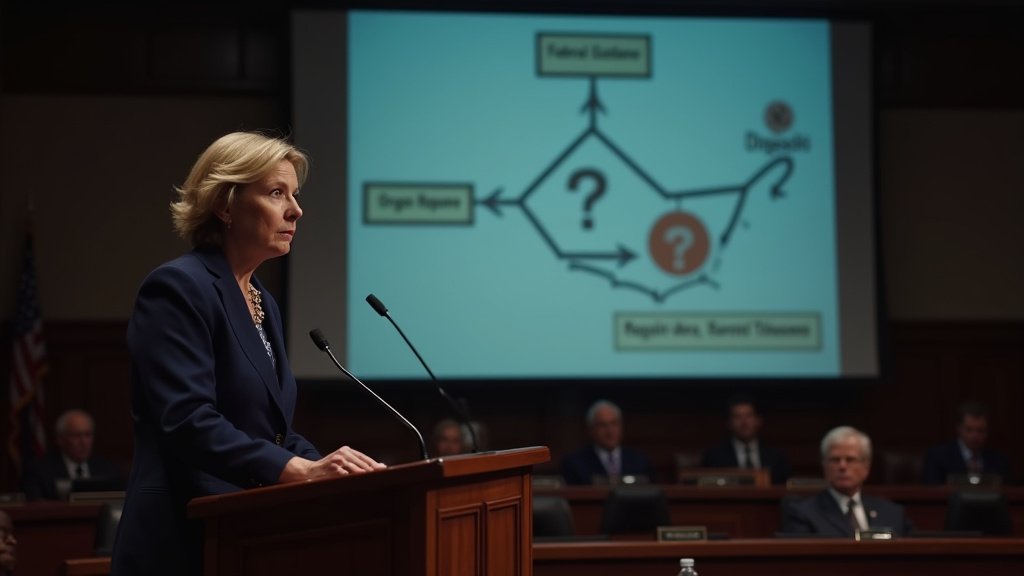Portland, OR – This weekend marks a period of significant transition and decision-making across Oregon, as the state grapples with key developments concerning federal authority, public order, and healthcare accessibility. Anticipating crucial Oregon policy changes, a significant court ruling on the deployment of National Guard troops is anticipated, Portland’s controversial public camping ban officially takes effect, and the annual period for Affordable Care Act (ACA) health insurance enrollment commences, clouded by uncertainty over future subsidies. These Oregon policy changes are multifaceted.
National Guard Deployment Ruling Looms Over Oregon Policy Changes
A significant legal challenge concerning the federal government’s authority to deploy National Guard troops within U.S. cities is reaching a critical juncture in Oregon. U.S. District Court Judge Karin Immergut is expected to deliver a ruling imminently, as a temporary restraining order (TRO) that has blocked such deployments is nearing its expiration. The TRO was initially issued in response to lawsuits filed by the state of Oregon and the city of Portland, which contended that the federal government, under President Trump, had exceeded its constitutional authority and infringed upon state sovereignty by federalizing National Guard troops. Judge Immergut had previously characterized the administration’s justifications for deployment as lacking factual basis and potentially overreaching presidential powers. The Ninth Circuit Court of Appeals has since taken the unusual step of ordering an en banc rehearing of the case, signifying the gravity of the legal questions at play regarding the balance of federal and state power. The impending decision will directly address the legality of federalizing state troops for domestic law enforcement and could set precedents for future executive actions, impacting future Oregon policy changes.
Portland Implements Strict Public Camping Ban Amidst Policy Changes
Effective November 1, 2025, Portland has begun enforcing its public camping ban, a policy that restricts individuals from camping or residing in vehicles on public property, such as streets, parks, and sidewalks, when sufficient shelter is deemed available. The ordinance, adopted previously, prohibits specific activities such as fires or blocking access, and violations can result in citations carrying fines or even jail time. Mayor Keith Wilson, who had previously paused enforcement to expand shelter capacity, has now directed police to begin issuing citations and conducting warrant checks. While the city emphasizes an approach focused on outreach and connecting individuals with services rather than immediate arrest, citations can lead to court dates, and individuals with outstanding warrants may be subject to arrest. Service providers have expressed concerns about the lack of clarity and potential impact on the unhoused population. This enforcement comes as advocates push for legislative changes to give cities more authority in managing encampments, though Mayor Wilson maintains state law does not hinder his mission. This is one of the significant Oregon policy changes affecting the city.
ACA Open Enrollment Begins Amidst Subsidy Uncertainty and Oregon Policy Changes
Today, November 1, 2025, marks the commencement of the annual Open Enrollment period for the Affordable Care Act (ACA) health insurance marketplace, offering individuals and families the chance to select coverage for the upcoming year. However, this year’s enrollment season is overshadowed by significant uncertainty regarding the future of ACA subsidies. Enhanced premium tax credits, which have been instrumental in making health insurance affordable for millions, are slated to expire at the end of 2025. If Congress fails to extend these subsidies, preliminary data and analyses suggest that average monthly premiums could rise substantially, potentially doubling for many enrollees, and up to 4 million people nationwide could lose coverage. In Oregon, approximately 140,000 residents who purchase private plans on the marketplace could face significantly higher costs, with some potentially paying hundreds of dollars more per month. Many prospective enrollees may need to select plans without definitive knowledge of their final costs, leading some experts to advise delaying enrollment until December to monitor legislative developments. The debate over extending these subsidies has also become a central point of contention in the ongoing federal government shutdown. The Open Enrollment period runs through January 15, 2026, with a deadline of December 15 for coverage to begin on January 1, 2026. These developments highlight the complex landscape of Oregon policy changes in healthcare.
Daylight Saving Time Ends
In addition to these major news items, Daylight Saving Time concludes across the United States on Sunday, November 2, 2025, at 2 a.m. local time, when clocks will be turned back one hour to 1 a.m..
These converging developments highlight a pivotal moment for Oregon, presenting complex challenges and critical decisions for its residents and policymakers alike, with many Oregon policy changes unfolding simultaneously.




